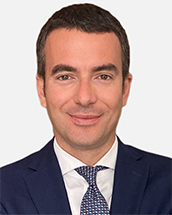In brief
On 2 July 2021, the Decree of the Ministry of Economy and Finance No. 100 of 30 April 2021 (“MEF Implementing Decree“) was published on the Official Journal of the Republic of Italy (Gazzetta Ufficiale). The MEF Implementing Decree provides the technicalities for the implementation of Article 36, paragraphs from 2-bis to 2-octies of the Legislative Decree No. 34 of 30 April 2019, as amended by Law No. 58 of 28 June 2019 (“Growth Decree“) in relation to the introduction of a FinTech regulatory sandbox in the Italian financial system. The MEF Implementing Decree (i) regulates the tasks attributed to the newly-established FinTech Committee, its functioning and composition, and (ii) provides a comprehensive framework for the FinTech experimentation, including setting out the requirements for participating to the Sandbox, the operational perimeter during the participation, and the regime for the termination of the experimentation.
The MEF Implementing Decree entered into force on 17 July 2021.
The FinTech Committee
The FinTech Committee is composed of the Minister of Economy and Finance, the Minister for the Economic Development, the political authority in charge of the EU affairs, the Governor of the Bank of Italy (the Italian supervisory authority competent for the banking and payments industries), the President of the Consob (the Italian supervisory authority competent for markets and investment services), the President of the IVASS (the Italian supervisory authority competent for the insurance industry), the President of the Italian Antitrust Authority (Autorità garante della concorrenza e del mercato), the President of the Italian Privacy Authority (Autorità Garante per la protezione dei dati personali), the Director of the Agency for the Digitalization (Agenzia per l’Italia digitale), and the President of the Italian Tax Authority (Agenzia delle entrate). Officers from other public administrations and FinTech experts, operators or associations may be invited to participate to meetings of the FinTech Committee, without voting rights.
The FinTech Committee is in charge of:
- conducting the FinTech experimentations;
- monitoring the evolution of the FinTech industry, at national and international level, in order to elaborate a policy for the development of the Italian FinTech sector;
- supporting and facilitating the interactions of private FinTech operators with public authorities and administrations, also by (i) conducting studies and researches, and (ii) organizing meetings with Italian and foreign FinTech operators and supervisory authorities;
- identifying and addressing the risk factors underlying the FinTech industry;
- coordinating the collaboration and information exchange with foreign authorities.
The FinTech experimentation – Requirements
The participation to the FinTech experimentation is reserved to undertakings performing one of the following technologically innovative activities in the banking, investment or insurance sector:
- activities that require an authorization or the enrolment in a register held by the Bank of Italy, the Consob or the IVASS (e.g., banking, payment, investment, asset management and insurance activities and services);
- activities that benefit from an exclusion from the authorization or enrolment requirements described in item 1. above, including those that (i) are not performed towards the public, or (ii) are performed towards a restricted audience;
- activities affecting regulated aspects performed on behalf of Italian and EU regulated entities (e.g., banks, investment firms, asset management companies, insurance undertakings) operating into Italy;
- activities performed by an Italian or EU regulated entity (e.g., banks, investment firms, asset management companies, insurance undertakings) operating into Italy.
FinTech operators whose activities do not fall under the above categories can informally contact the Italian supervisory authorities (i.e., the Bank of Italy, the Consob and/or the IVASS), in order to assess whether such activities have characteristics or entail risks similar to those which are associated with the performance of regulated activities. If the outcome of the assessment is positive, the FinTech Committee may admit the FinTech operator to the FinTech experimentation.
There are not geographic restrictions in place for the participation to the FinTech experimentation, and Italian, EU and non-EU operators may apply. However, under certain circumstances, non-EU FinTech operators may be required to open an Italian office (i.e., a branch or a representative office) in order to be admitted to the experimentation.
The activities admitted to the FinTech experimentation must possess all the following features:
- must be highly innovative;
- entail a derogation from the ordinary supervisory guidelines and/or regulatory provisions adopted by the Italian supervisory authorities;
- produce added value, in terms of:
- consumers welfare (e.g., lower prices, better quality of the services, enhancement of the competition, easier access to the services, more protection for customers);
- enhancement of the efficiency of the banking, investment or insurance sector;
- reduction of the costs or increase of the efficacy of the implementation of the banking, financial or insurance regulations;
- improvement of the risk management systems, procedures or internal processes of regulated entities
- must be already enough developed for the experimentation;
- must be economically and financially sustainable, or have adequate financial coverage.
The corporate representatives of FinTech operators that are not regulated entities must satisfy specific integrity requirements set forth in the Decree of the Ministry of Economy and Finance No. 169 of 23 November 2020.
The FinTech experimentation – Participation
Any FinTech operator intending to participate to the FinTech experimentation must file an application with the Italian supervisory authority that is competent for the relevant regulated industry. The application contains, inter alia, a detailed description of the project (including its innovative features, its added value and the length, purpose and target of the participation to the experimentation), a feasibility study (that takes into account the sustainability and the necessary financial coverage of the project) and a list of the ordinary supervisory guidelines and/or regulatory provisions that would be derogated during the experimentation and the rationale behind the derogation.
By September 2021, the Italian supervisory authorities will specify the time window for the submission of the applications.
If the application is accepted, the FinTech operator is authorized to operate on the market, within a specific perimeter that is tailored by the competent Italian supervisory authority on a case-by-case basis. In fact, the Italian supervisory authority can grant authorizations with narrower scope as compared to what is ordinarily provided by law or impose operational limitations to participants, in addition to allowing derogations from their supervisory guidelines and/or regulatory provisions.
Participants to the FinTech experimentation are enrolled on a register held by the FinTech Committee, and remain subject to the supervision of the competent Italian supervisory authority.
The experimentation may last for a maximum of 18 months, that can be extended upon request. At the end of the FinTech experimentation, the participants must submit an operational and economic report on the participation to the experimentation to the competent Italian supervisory authority, and they may apply for the relevant authorization for performing their activities on the market, if it is required.
FinTech operators are allowed to interact with the Italian supervisory authorities using the English language, although (i) the application for participating to the FinTech experimentation, and (ii) all the information and advertising material and any documentation, including pre-contractual and contractual documents, provided to clients must be in Italian.




